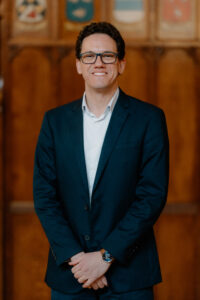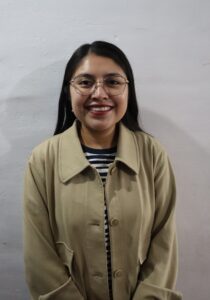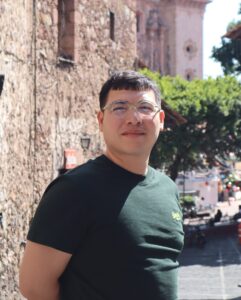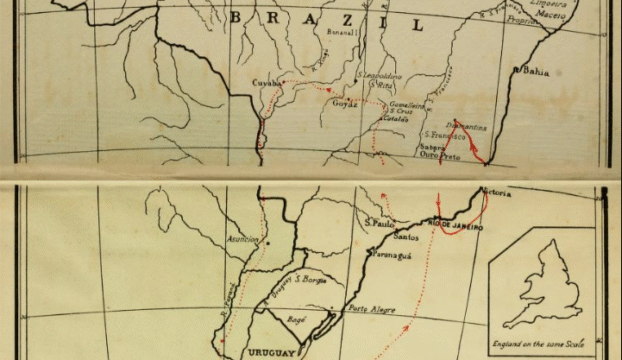In the 1990s, the historian Andrew Ross described the New College student body of his day as increasingly cosmopolitan. “Now,” he wrote, “the continents of Africa, Asia, Europe and North America are evenly balanced in numbers, with the occasional and very welcome student from South America and Oceania.” Fast forward to 2025, when students (and faculty) from South and Central America remain equally welcome but have become less occasional.

The late Marcella Althaus-Reid, appointed to a chair in contextual theology in 2006—the first woman professor in our School’s history—was Argentinian. In more recent times, Dr Pedro Feitoza, Lecturer in Latin American Christianity, has taken up residence here. “I work on the history of Christianity in Latin America. I came to Edinburgh because of the Centre for the Study of World Christianity. It’s an outstanding centre and holds important archives for Brazilian church history. As well as giving me access to that material, studying Latin America from Edinburgh has the benefit of giving me insider and outsider perspectives. Learning about Latin America is important for students here too. It shows them familiar things and texts in perhaps an unfamiliar location. That can make you a better global citizen.”
“Being a Brazilian in Edinburgh means the challenge of learning a new culture. Latin American social interactions are extroverted and spontaneous, and our weather is different! That brings Latin Americans together at New College. For most of the 20th century Latin America was left out of the conversation on world Christianity. Today, we’re trying to bring Latin America into that conversation. We now have postgraduate students from Brazil, Mexico, Chile, and Argentina, and they’re spread across different fields of study. That’s a good start—and we’re all very festive.”

Before coming to Edinburgh, PhD students Walter Jasem de la Cruz Que and Miriam Garcia Jimenez studied in their native Mexico, before taking postgraduate degrees in South Korea. Miriam: “In Korea we studied at Yonsei University under Samuel Pang, who had studied in Edinburgh. In Mexico, we also had a professor who studied here, Abel Clemente. The Presbyterian Church in Mexico appreciates the academic freedom we enjoy at New College.” Walter: “In Mexico, we don’t have schools like this in our universities. The freedom of theological inquiry here is wonderful. It makes you grow. It’s important for Mexico that we go back there to teach. I look forward to that.”




